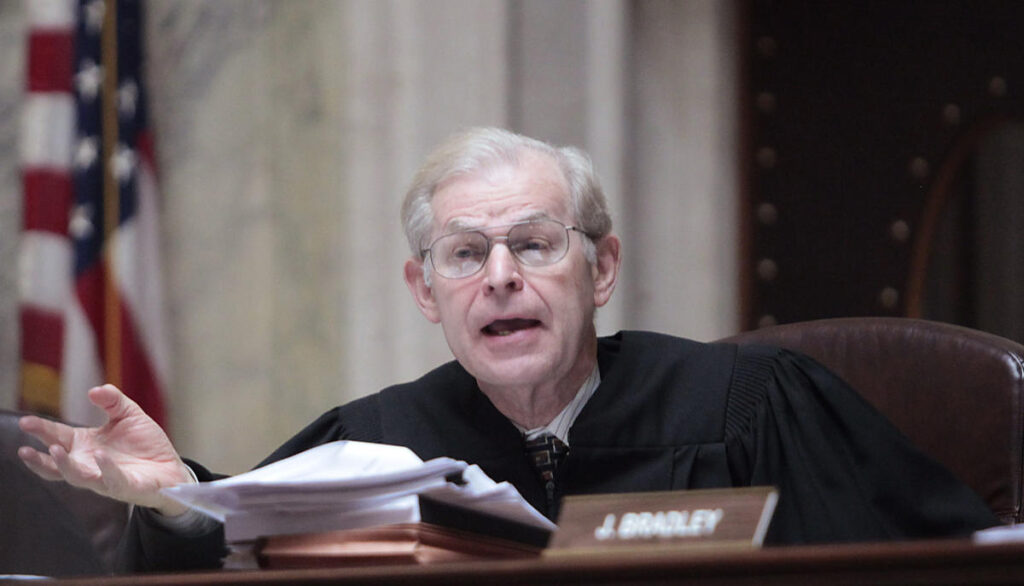David Prosser, a prominent figure in Wisconsin’s political landscape, has died at the age of 81 after a battle with cancer. Prosser’s career spanned decades, with significant roles as both a Republican state Assembly Speaker and a justice on the Wisconsin Supreme Court for 18 years. He was deeply involved in pivotal political moments in the state, most notably during the contentious debates surrounding collective bargaining rights for public workers, particularly highlighted by the 2011 law supported by then-Governor Scott Walker. His narrow reelection victory that same year was viewed as a referendum on Walker’s policies, demonstrating how intertwined politics and judicial proceedings were during his tenure.
Prosser’s career included notable achievements and controversies. His reelection campaign in 2011 culminated in a narrow victory, which followed a recount that confirmed his lead. However, his tenure on the Supreme Court wasn’t without conflict, particularly exemplified by a physical altercation with liberal Justice Ann Walsh Bradley. This incident occurred during a heated discussion about the court’s decision on Act 10, which upheld restrictions on collective bargaining. Bradley accused Prosser of placing her in a chokehold, a serious claim that led to an investigation but ultimately resulted in no charges being filed, showcasing the intense partisan divides within the court itself.
The aftermath of the altercation led to an ethics complaint being filed against Prosser, but circumstances prevented it from being adjudicated, as recusal by conservative justices left the court without a quorum. Despite these conflicts, Prosser retained significant influence in Wisconsin’s judicial landscape even after his retirement in 2016, including a role as an advisor regarding potential impeachment discussions of other justices, demonstrating his continued engagement with legal and political matters in Wisconsin.
An alumnus of the University of Wisconsin-Madison’s law school, Prosser began his professional life as a U.S. Department of Justice attorney and later as a law lecturer. As a political figure, he was elected to the Wisconsin Assembly in 1978 after serving as the Outagamie County district attorney. Among his notable contributions was his support for funding the construction of Miller Park, home of the Milwaukee Brewers, reflecting his interests beyond the courtroom and legislature.
Prosser’s time on the Supreme Court was characterized by his involvement in high-profile cases and his alliances with fellow conservative justices, occasionally resulting in fierce debates with liberal counterparts like former Chief Justice Shirley Abrahamson. His legacy is marked by his commitment to conservative judicial principles and the legal precedents set during his tenure. He received recognition for his service, culminating in the naming of the Wisconsin Law Library for him. However, this honor was later revoked in favor of Lavinia Goodell, Wisconsin’s first female lawyer, indicating a shift in the values and narratives appreciated within the state’s judicial history.
In the wake of his passing, reflections from colleagues and political figures underscore Prosser’s contributions to Wisconsin. Former Governor Tommy Thompson lauded him for his common-sense solutions and ability to forge results-oriented actions, while current Supreme Court Chief Justice Annette Ziegler emphasized the profound impact of Prosser’s work on the state’s legal, legislative, and judicial frameworks. As Wisconsin remembers Prosser, the complexities of his legacy—encompassing both significant achievements and contentious moments—remain evident in the ongoing conversations about the state’s political and judicial arenas.

